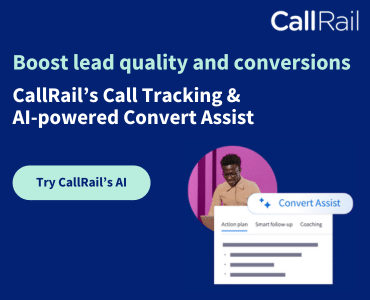Legal service plans can help your practice grow sustainably, boost profitability and even bridge the access-to-justice gap by modernizing how you get new clients. Sound too good to be true? Here’s no-nonsense insight into how plans work, and how they deliver.

In the people’s law segment, practicing law is already demanding. Add the time, cost and frustration of finding new clients, and it can feel overwhelming. You juggle networking events, field “quick questions” from “friends,” hope word-of-mouth referrals pan out, and tiptoe around ethics rules when advertising. Even if you keep your pipeline steady, that likely came through years of hard-won relationships — and you still face a limit when each day ends.
Meanwhile, social media is full of ads promising “instant law-firm scaling,” yet many of those are nothing more than repackaged lead-generation methods. True sustainability requires modern tools and real relationship-building because trust is still your firm’s strongest currency — even in a digital age. However, there is another crucial piece to this formula: the large segment of middle-income Americans whose legal needs go unmet.
Reaching the Hidden Market of Would-Be Clients
According to the 2016 ABA Report on the Future of Legal Services, the majority of people in this demographic never even seek counsel, often assuming it is too expensive or unavailable, or not realizing the law can offer a solution. They form a vast, hidden market in need of a clear, cost-effective path to services. And this is compounded in rural and other underserved communities. By combining trust, technology and outreach to these reluctant would-be clients, lawyers can move beyond old tactics and tap into sustainable, meaningful growth in the people’s law segment of the legal profession.
If you sense there is a better way forward, you are in the right place. In the following, you will find direct, no-nonsense insight into how legal plans can help you scale sustainably, boost profitability and even bridge the access-to-justice gap by modernizing client acquisition.
Why Legal Service Plans Belong in Every Lawyer’s Toolkit
Legal service plans rest on a simple premise: They pool paying members who already value legal counsel and connect them with a vetted attorney network. These clients are not just last-minute emergencies; they appreciate having ongoing access to a trusted lawyer. Some attorneys may assume such clients are rare. Consider, however, that legal service plans offered through employee benefits programs often see high enrollment, showing that when services are both accessible and affordable, consumers opt in. By linking these otherwise hesitant individuals with attorneys ready to help, legal plans foster a reliable rapport and expand the reach of your legal services.
Clear-cut Benefits
More specifically legal plans motivate consumers to address potential legal matters early. Rather than waiting for a crisis, members become more inclined to seek routine counsel even for supposedly “small things” — such as reviewing contracts or clarifying their rights — before problems escalate. Similar to visiting the dentist every six months, regular check-ins can uncover and handle issues sooner, often leading to even more preventive work for lawyers and less stress for clients. In the biggest picture, this proactive model promotes broader access to justice by making routine legal help a normal part of life, ultimately contributing to a healthier, more equitable society.
But let’s get more practical. Legal service plans significantly improve collections. In practice, what you bill is far less important than what you actually collect. Because legal plan members clearly understand their coverage and expected costs upfront, billing friction sharply decreases, transforming theoretical revenue into predictable cash flow. In addition, for certain covered services, the legal plan itself — not the client — directly pays your bill, virtually guaranteeing timely payment and further reducing financial uncertainty.
Lastly, beyond the business advantages, legal plans help preserve the meaningful human element in law practice. In an age of burgeoning non-lawyer solutions and AI-driven legal technology, legal plans ensure attorneys remain the core, nuanced professionals upon whom the justice system relies and, practically speaking, deliver clients to your law firm.
A Balanced Alternative to Traditional Marketing
Traditional marketing for small or solo firms usually involves bus-stop ads, sponsoring local school events, and maintaining a basic, static website. All of which seldom align with client needs. But perhaps the largest hidden cost is your time — endless hours spent personally networking, attending community events, or following up on uncertain referrals. Unlike direct financial costs, this investment is intangible yet very significant, draining productivity and limiting your focus on actual lawyering. By contrast, the best legal service plans have little or no upfront costs and deliver truly pre-screened clients whose needs align with your firm. Even if your current advertising feels effective, consider how many potential clients still never seek counsel. If traditional marketing alone could reach them, you would already have these would-be clients in your office.
Meanwhile, practice areas such as personal injury often dominate media space because high-value contingency fees justify massive ad spending, and the client never truly sees the lawyer’s cost to acquire the case. Yet consumer matters or domestic relations do not attract that level of marketing budget. Legal plans become an efficient way to educate potential clients, especially in niche or lower-margin fields that traditional advertising typically misses. By raising public awareness plans deliver a ready pool of cases that bolster both consumer access and your bottom line.
Why Legal Plans Feel ‘Too Good to Be True’ — and Why They Really Deliver
If you are used to scrambling for leads and chasing unpaid invoices, legal plans can sound like a fairy tale. Yet legal service plans are not new. They have existed for decades. Today, however, legal plans leverage cutting-edge technology, strong financial models and increased consumer awareness, making them far more effective than they were even a decade ago. Let us address the most common doubts head-on.
Concern: I Will Be Forced to Work for Peanuts
Many lawyers worry that legal plan compensation will never match their standard hourly rates. It is true that individual hourly rates typically are lower. But pause and ask yourself: Why exactly do you charge $350 an hour? Is it because law school was hard and expensive? Because your competitor charges that rate? Or is that genuinely the amount required to deliver quality service profitably? Legal plans prompt you to reconsider your billing assumptions, steering you toward a more efficient, client-centered practice model.
The payoff is clear: a well-structured legal plan offers volume and predictable consistency, often more than offsetting slightly lower per-case fees by providing a stream of potential clients with no client acquisition costs. Importantly, the best plans allow you to maintain control over setting your own rates based on your market, experience and complexity of the case — guided only by reasonable discount parameters and what the plan delivers in actual overall value to your practice.
Concern: They Will Interfere with My Professional Judgment
Ethical rules bar third-party payers from dictating legal strategies, and reputable plans structure themselves accordingly. You still handle every aspect of representation — conflicts, scope, confidentiality and strategy — just as you would with any client. The plan’s role is merely to connect members who need help, not to micromanage your work. In fact, most plans explicitly recognize your independent judgment in their agreements, ensuring you don’t compromise your ethics.
Concern: Clients Will Expect Everything for Free
Yes, clients want affordable legal help. Some lawyers dismiss this as clients being cheap or unaware. However, the real issue is that traditional legal fees often exceed what ordinary people can afford. Legal plans alleviate the disconnect. When walking into your office, legal plan members should already know some services are covered and that your services for more complex matters will be more affordable than in the open marketplace. In short, plan clients walk in informed, prepared and ready to pay for more affordable extended services.
Concern: This Sounds Like a ‘Legal Mill’
If that phrase crossed your mind, here is a reality check: Why has the legal profession frowned upon efficiently handling high-volume legal work? Could it be that charging high hourly rates does, indeed, encourage lawyers to work slowly? Or perhaps you genuinely pride yourself on a bespoke approach — imagining Abraham Lincoln reading law by candlelight — and feel ethically obligated to provide bespoke service. But consider whether the belief that only “sophisticated,” bespoke work truly matters might reflect an implicit bias, quietly dismissing routine legal matters essential to meaningful access to justice. Finally, it is fair to acknowledge that before the technology revolution, high-volume legal work was indeed nearly impossible to deliver competently.
Embracing efficiency does not mean abandoning quality or ethical care. The modern legal landscape demands both. Handling routine, higher-volume matters more efficiently frees you to apply deeper expertise precisely where it is needed most, all enhanced by technology. A blend of efficiency, practical innovation and traditional, personalized attention where necessary should elevate your practice, boost profitability and enhance client satisfaction.
Who Really Pays?
A legal plan markets your services on a scale small firms cannot achieve individually. Some lawyers assume clients indirectly cover these marketing costs through their membership fees, but this is not the case. Legal plans fix an inefficient marketing system by pooling resources, directly benefiting both attorneys and clients.
Members clearly understand their legal plan pooled membership fees provide reliable, guaranteed access to qualified attorneys who handle their specific legal needs more affordably. Additionally, the best legal plans do not charge attorneys upfront marketing or referral fees; the entire business model is fully supported by member subscriptions.
Pointers for Incorporating Legal Service Plans
So, how can you successfully integrate a legal plan into your practice?
- Vet the plan. Confirm its reputation, financial stability and ethical standards. Choose carefully — recently there have been many “pop-up” questionable online providers.
- Embrace efficiency. Today’s successful small firm must implement its own modern technology — such as digital intake processes and automated document management. Legal plans expect the firms in the network to be modernized.
- Welcome feedback. Plans often solicit client feedback on your services. Use this valuable insight — feedback you would not otherwise receive — to refine your practice and strengthen client satisfaction.
- Set clear expectations. Never assume clients know the plan details. Clearly discuss and reduce to writing coverages and limits, clarifying everything upfront to avoid misunderstandings about when additional fees apply.
Finally, remember that legal plans are not one-size-fits-all; they are flexible supplements to your practice, not replacements. You control which cases to accept and how much plan work to incorporate. Thus, a legal plan complements your business on your terms, without compromising your autonomy or professional focus.
The Takeaways on Legal Service Plans
Legal service plans directly address persistent hurdles — marketing, client education, lead generation, client acquisition and collections — that hold many small and solo firms back. By connecting attorneys seeking predictable, profitable work with underserved clients who need affordable legal help, these plans simultaneously grow your practice and narrow the access-to-justice gap. The impact is especially significant in rural and underserved communities, where the demand for legal services remains high but access to affordable, qualified attorneys is often limited. The result is a sustainable business model producing informed, empowered clients who understand the value of proactive legal assistance — benefiting not only attorneys but also the communities they serve.
(Related: “Can Rural America Reverse the Legal Desert Trend?” by Roy Ginsburg)
The bottom line? Integrating a legal plan into your practice could be the key to unlocking growth and peace of mind in your career. It is an opportunity worth exploring for any attorney ready to embrace a modern, client-centered approach.
Spotlight on LegalShield: FAQs
In full disclosure, I have worked with LegalShield for over 25 years. Rather than bias, I see this long tenure as evidence of its effectiveness. Among legal plans, LegalShield stands apart due to its substantial scale, proven infrastructure and decades-long track record of connecting lawyers efficiently to clients. It significantly simplifies how attorneys attract, serve and retain clients, allowing them more time to practice law rather than chasing uncertain leads.
The following FAQs provide straightforward answers about how LegalShield works. In fact, if you have more specific questions feel free to email me personally.
LegalShield is one of the largest and longest-running providers of prepaid legal service plans in North America. Established in 1972, it offers individuals, families and small businesses affordable access to a network of vetted attorneys. It currently serves more than 1.8 million memberships (over 4.5 million individuals) and complies with the professional responsibility rules of each jurisdiction where it operates.
To participate in the network, you must have a minimum of two years of practice experience, no disciplinary history, at least $100,000 in malpractice coverage, and sign an agreement to provide services according to the terms of LegalShield’s plans.
No.
If you provide services fully covered by a member’s LegalShield plan, you are paid directly by the plan at a pre-negotiated rate. For services outside the full coverage, clients pay you directly at a discounted rate, which varies depending on the terms of their specific legal matter and legal plan.
A designated law firm in your state prescreens inquiries, handles initial consultations and then refers matters to network attorneys when further assistance is needed. Referrals are carefully matched based on practice area and client proximity. Nearly all communication and billing flow through that designated firm, ensuring smooth, efficient interactions and allowing you to avoid the frustrations typical of large corporate bureaucracies.
Perform conflict checks. Return calls promptly. Have a clear written agreement with each LegalShield member reflecting their plan terms. Provide timely monthly billing. And, of course, deliver excellent client service. (Remember, members will be asked to rate their experience, offering valuable feedback you might otherwise miss.)
No.
Yes. Accepting a case is entirely your decision. If you decline a referral, the legal plan member will be referred to another network attorney.
Image © iStockPhoto.com.

Don’t miss out on our daily practice management tips. Subscribe to Attorney at Work’s free newsletter here >















